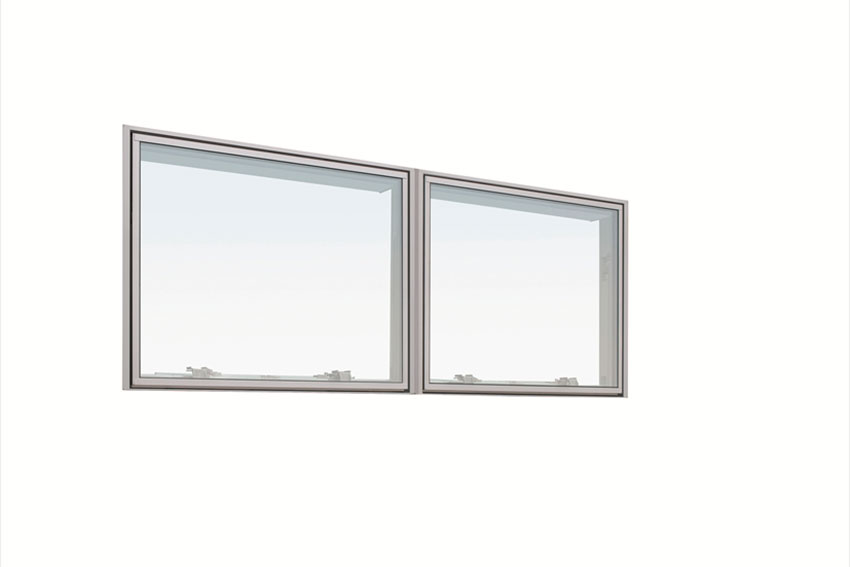A pioneer in aluminum-based window sashes, Fujisash is playing a clear role in making buildings more energy efficient.

Having provided the curtain walls on Japan’s first-ever skyscraper, the New Otani Hotel in 1964, Fujisash has grown to become a leading manufacturer of window sashes and curtain walls found in high-rise buildings across Japan and Southeast Asia.
Committed to providing its clients with high-quality and high-performing solutions, the Japanese firm today has leveraged its more than 65-year experience in the industry to ensure its products are top-of-class when it comes to insulation technology – a key consideration for buildings in our climate-conscious world. As such, Fujisash – a go-to partner for some of Japan and Asia’s leading construction companies – is playing a clear and decisive role in making buildings ever-more energy efficient.
With major projects like the Grand Front Osaka and Kuala Lumpur’s new international airport making up its extensive portfolio, the Tokyo-headquartered enterprise is “a pioneer of aluminum-based sashes in the industry”, president Tsutomu Yoshida proudly declares. Although the company has branched out to offer hybrid solutions combining aluminum and plastic resins in recent years.
“We are catering more to high-rise buildings rather than individual homes and private housing. These buildings have really high standards, and we need to meet really high specifications in terms of environmental regulations, energy consumption savings and so on,” Mr. Yoshida explains.
“Aluminum is certainly good for insulation, but what's even better are plastic resin-based materials, so what we've been doing is creating a combination of aluminum with resin by fusing them together to create a material that is very high performing when it comes to insulation. We've actually been rolling out this aluminum resin infusion-based product for Sekisui House [one of Japan’s largest homebuilders].”
Fujisash’s pioneering spirit has seen the company develop innovations like Winbreath. "One of our flagship products when it comes to environmental considerations is our Winbreath window sash. Without electricity or power to support ventilation, it moves in accordance with natural wind power, so just using natural pressure, it opens and closes when required,” says the company president. “I think the motivation behind Winbreath was the idea that there could be windows that don't require power to be opened, and that could support good ventilation, especially in Japan with the difference in the four seasons.”
Another of Fujisashi's pioneering steps was its move into the LED lighting business, with the company adding thin LED chips to its window sashes, marrying haute interior design aesthetics with high technology.
Giving his vision on the future of lighting, Mr. Yoshida says: "I think the kind of light fixtures you see today will slowly be phased out as the years progress. I believe that in future, lighting will be installed and integrated in such a way that it wouldn't be obvious that there was a light in the room. We thought maybe that we could replicate the way billboards work, but in interior settings. The interior designers that we approached with this subject thought it was very interesting, and we started to create lighting that doesn't feel like lighting."
Having initially established an overseas presence back in Malaysia in 1990, followed by The Philippines in 1994, the ‘Glocally’-minded firm continues to strengthen its presence in fast-growing Southeast Asia, where it relies on local staff and production sites in line with its sustainable business practices.
“We’re putting our focus on ensuring that the local company offices are able to work to their highest capacity, not needing to rely on any support from Japan per se, but able to run everything locally,” Mr. Yoshida reveals.
“For example, we have a factory in The Philippines which manufactures various products. We're looking to have the Philippines plant manufacture curtain walls that can then be supplied to Taiwan, where there is high demand for these curtain walls in high-rise buildings, so creating that integration and collaboration between the different overseas points will be the next step in our strategy.
“Currently, our largest manufacturing plant for curtain walls outside of Japan is operated with a partnership that we have with a Chinese company called Endai, and we’re looking to see how we can expand our supply chain by increasing the functionality of the factory in The Philippines.”
Indeed partnership and collaborations such as that with Endai are crucial to Fujisash’s international growth ambitions, and Mr. Yoshida stresses the company is always seeking new partners who share its goals, values, and vision for a greener future supported by energy efficient buildings.
0 COMMENTS